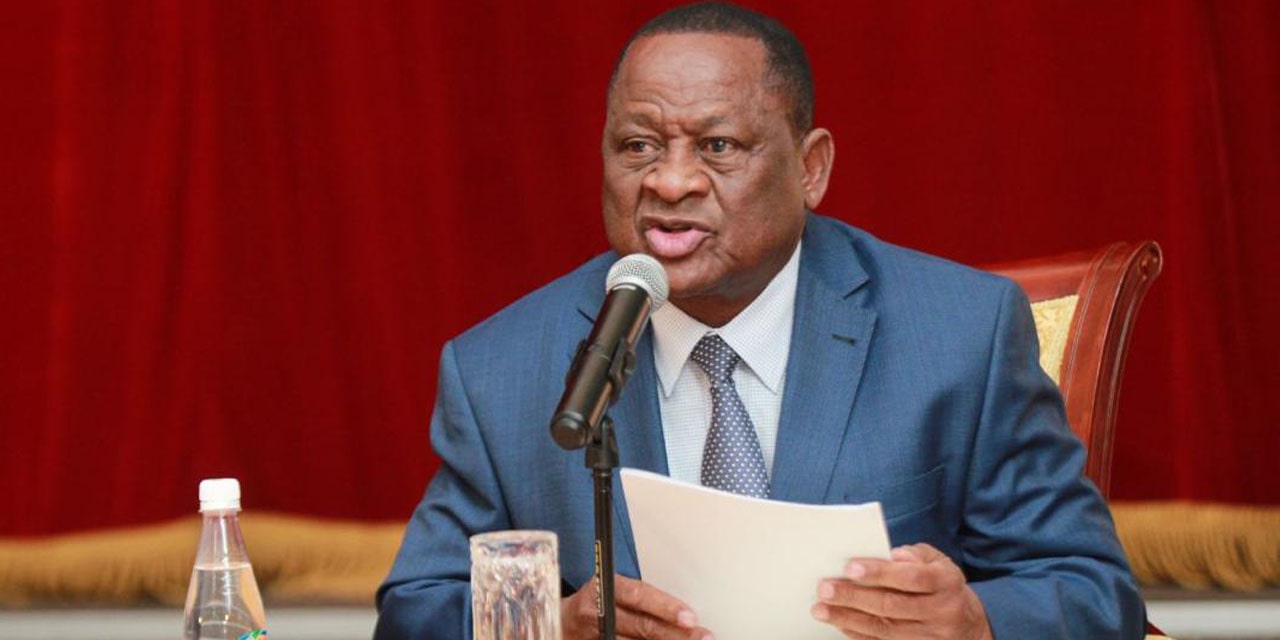Niël Terblanché
The Ministry of Health and Social Services is working on ways to mitigate the challenges of supplying medicines and clinical supplies to public health facilities.
The health minister, Dr Kalumbi Shangula, revealed this on Monday while providing an update on the ministry’s ongoing initiatives and the challenges faced over the past three years at the Government Information Centre.
He said that these issues of shortage of medicine and clinical supplies stem from legal challenges to procurement processes, lengthy procedures, low procurement thresholds and poor supplier performance.
“To mitigate these challenges, the Ministry has introduced several measures, including obtaining exemptions from the Ministry of Finance and Public Enterprises, direct procurement through market scans, utilizing pooled procurement mechanisms, establishing multi-year framework agreements, and bilateral cooperation for joint procurement,” he said.
He added that the shortages of active pharmaceutical ingredients, and disruptions in international logistics channels also exhibitates the problems faced by public health facilities.
Shangula said that these efforts have begun to yield positive results, and the ministry is confident that the stock-out of pharmaceuticals and clinical supplies will be resolved soon.
According to Shangula, more than 85% of Namibia’s population relies on public health services provided through a network of 322 clinics, 56 health centres, 34 district hospitals, four intermediate hospitals, and one national referral hospital. Additionally, there are over 1,150 outreach points across the country.
Shangula highlighted the construction of new health facilities, maintenance of existing ones, and procurement of essential medical equipment, pharmaceuticals, clinical supplies, ambulances, and accessories.
“The ministry has also embarked on building Health Posts in various constituencies to enhance access to healthcare services,” he said.
These facilities provide comprehensive services, including health promotion, preventive and curative interventions, immunization, and specialized services at tertiary healthcare hospitals.
He added that the government has approved the introduction of additional healthcare services in state-owned health facilities.
“This includes establishing Intensive Care Units (ICUs) in all district hospitals, setting up dialysis units in several hospitals, and expanding dental and oncology services,” he said.
Before the Covid-19 pandemic, there were fewer than 25 ICUs in the public health sector.
He said the ministry’s decision to establish ICUs in all 34 district hospitals aims to improve service delivery and bring services closer to communities.
The ministry, according to Shangula, has prioritized the installation of oxygen-generating systems at multiple health facilities, including Onandjokwe, Mariental, Swakopmund, Okakarara, and St Mary’s Rehoboth Hospitals.
He said most district hospitals and health centres now have oxygen-generating capabilities, ensuring better preparedness for future health emergencies.
Shangula added that new dialysis units will be established in hospitals such as Katutura Intermediate Hospital, Keetmanshoop, Rundu, Oshakati, Otjiwarongo, and Walvis Bay, reducing the need for patients to travel long distances for treatment.
“Significant investments have been made in procuring and installing high-end medical equipment across various health facilities. This includes operating tables, electrocardiographs, infant incubators, dental chairs, dental x-rays, and dental autoclaves,” he said.
The ministry has also installed advanced imaging systems, such as the Picture Archive and Communications System (PACS) and Radiology Information System (RIS), to digitalize the storage and transfer of patient imaging records.
He also indicated that several capital projects were completed during the 2023/2024 Financial Year, such as constructing new clinics, upgrading existing facilities, and enhancing infrastructure at hospitals.
He said that major renovation and restructuring work is underway at Katutura Intermediate Hospital, including the recently inaugurated Emergency Centre.
“The ministry is also fast-tracking the development of the Windhoek District Hospital to alleviate the workload at Katutura Intermediate Hospital,” he said.
According to Dr Shangula, Namibia is addressing substance abuse and mental health challenges through the Etegameno Rehabilitation and Resource Centre, which offers essential treatment and psychosocial support for alcohol and drug dependency.
He added that the expansion of outpatient services to more regions reflects the government’s commitment to broader access to rehabilitation.
“We continuously address diseases such as HIV/AIDS, malaria, and TB with intensified surveillance and response efforts,” he said.
Dr Shangula called upon all Namibians to cooperate with public health authorities to combat diseases while stressing that prevention begins at home, in communities, and in schools.
“Namibia’s efforts in public health have garnered international recognition, especially in HIV and Hepatitis B prevention and control,” he said.
According to Dr Shangula, the Namibian delegation to international health negotiations has also attracted admiration which focused attention on the country’s commitment to improving global health standards.




